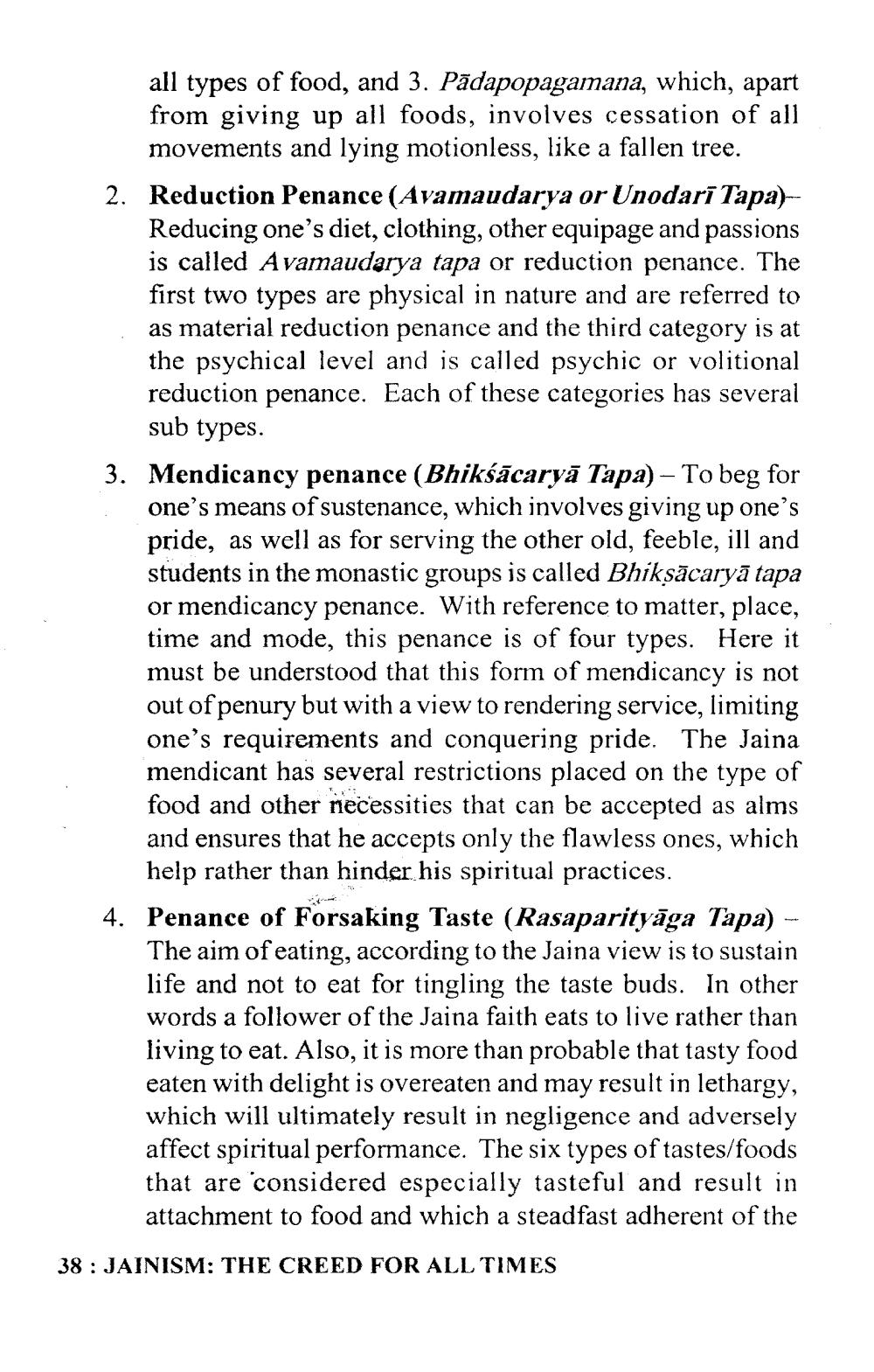________________
all types of food, and 3. Pādapopagamana, which, apart from giving up all foods, involves cessation of all
movements and lying motionless, like a fallen tree. 2. Reduction Penance (Avamaudarya or Unodarī Tapa)
Reducing one's diet, clothing, other equipage and passions is called Avamaudarya tapa or reduction penance. The first two types are physical in nature and are referred to as material reduction penance and the third category is at the psychical level and is called psychic or volitional reduction penance. Each of these categories has several
sub types. 3. Mendicancy penance (Bhiksācaryā Tapa) - To beg for
one's means of sustenance, which involves giving up one's pride, as well as for serving the other old, feeble, ill and students in the monastic groups is called Bhiksācaryā tapa or mendicancy penance. With reference to matter, place, time and mode, this penance is of four types. Here it must be understood that this form of mendicancy is not out of penury but with a view to rendering service, limiting one's requirements and conquering pride. The Jaina mendicant has several restrictions placed on the type of food and other necessities that can be accepted as alms and ensures that he accepts only the flawless ones, which
help rather than hinder his spiritual practices. 4. Penance of Forsaking Taste (Rasaparityāga Tapa) -
The aim of eating, according to the Jaina view is to sustain life and not to eat for tingling the taste buds. In other words a follower of the Jaina faith eats to live rather than living to eat. Also, it is more than probable that tasty food eaten with delight is overeaten and may result in lethargy, which will ultimately result in negligence and adversely affect spiritual performance. The six types of tastes/foods that are considered especially tasteful and result in
attachment to food and which a steadfast adherent of the 38 : JAINISM: THE CREED FOR ALL TIMES




